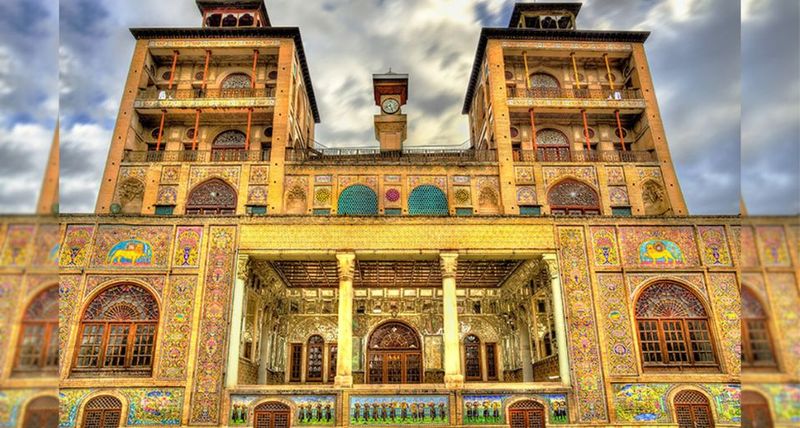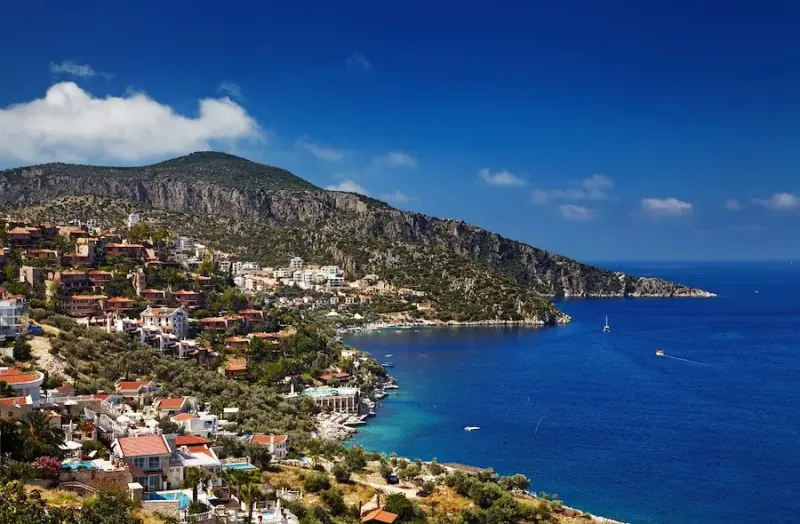18 Countries Where American Tourists Aren’t Always Welcomed With Open Arms

Traveling abroad can be an eye-opening adventure, but not every destination rolls out the red carpet for American visitors. Political tensions, cultural differences, and historical conflicts often shape how locals perceive U.S. tourists.
Understanding these dynamics before you pack your bags can help you navigate potentially uncomfortable situations and show respect for the local perspective.
1. Iran’s Complex Relationship With American Visitors

Despite the breathtaking architecture and incredible hospitality of ordinary Iranians, decades of political tension between the U.S. and Iranian governments have created complications for American travelers. Many Iranians distinguish between American people and policies, but official rhetoric remains hostile.
You’ll need to join a guided tour as independent travel isn’t permitted for Americans. The visa process is notoriously difficult, and U.S. citizens face additional scrutiny. In busy markets or public spaces, keeping a low profile is sometimes advisable.
2. North Korea’s Strict Control Over American Tourism

Visiting the world’s most isolated nation comes with extraordinary restrictions for Americans. The DPRK views the United States as its primary adversary, and this shapes every aspect of the tightly controlled tourism experience.
Americans can only visit through authorized tour companies and must be accompanied by two North Korean guides at all times. Photography is heavily restricted, and any perceived disrespect toward the leadership can result in serious consequences. The U.S. State Department has periodically banned Americans from traveling there entirely.
3. Venezuela’s Political Tensions With American Visitors

Once a popular destination for Americans, Venezuela’s relationship with U.S. visitors has soured amid ongoing political disputes between the two governments. Anti-American sentiment can sometimes spill over into everyday interactions, especially in politically charged areas.
Many Venezuelans differentiate between American citizens and U.S. foreign policy, but official hostility has created an uncomfortable atmosphere. The U.S. Embassy has limited capacity to assist Americans, and certain government-affiliated locations actively discourage American visitors. The current economic crisis has also made travel logistics extraordinarily challenging.
4. Russia’s Shifting Attitudes Toward American Tourists

Following Russia’s invasion of Ukraine and resulting Western sanctions, the atmosphere for American visitors has grown increasingly frosty. State media regularly portrays the U.S. as an enemy, influencing how some Russians perceive American tourists.
While many Russians remain friendly to individual Americans, distinguishing them from U.S. government policies, political tensions are unavoidable. Some tourist sites now feature anti-American propaganda. The U.S. State Department warns Americans about potential harassment from Russian authorities, especially in major cities.
5. China’s Growing Suspicion of American Travelers

Recent geopolitical tensions have cooled China’s once-welcoming attitude toward American visitors. Government-controlled media regularly criticizes the United States, potentially influencing how locals view American tourists.
Many Chinese citizens remain curious and friendly toward Americans, but increased surveillance and scrutiny have become common. Your phones and electronic devices may be searched at borders. In politically sensitive regions like Xinjiang or Tibet, Americans report additional questioning and monitoring by authorities.
6. Cuba’s Complicated Welcome for American Visitors

The relationship between American tourists and Cuba remains complex due to decades of embargo policies. While many Cubans warmly welcome individual Americans, official attitudes fluctuate with changing U.S. administrations and policies.
Travel restrictions for Americans change frequently, creating confusion about legal visits. Some government-run establishments maintain anti-American messaging. The dual currency system can sometimes result in Americans paying higher prices than other tourists.
7. Pakistan’s Security Concerns With American Visitors

While Pakistani hospitality is legendary, American tourists face unique challenges due to complicated diplomatic relations. Anti-American sentiment exists in certain regions, fueled by drone strikes and military operations along the Afghan border.
Most Pakistanis distinguish between American people and policies, but security concerns remain real. Americans often receive extra scrutiny from authorities. Many beautiful areas require special permits for foreigners, with additional restrictions for U.S. citizens.
8. Turkey’s Increasing Friction With American Travelers

Once a top destination for Americans, Turkey has seen growing anti-American sentiment amid political disagreements between the two nations. Government rhetoric occasionally portrays the U.S. negatively, influencing public perception in more conservative areas.
Many Turks in tourism-dependent regions remain welcoming, separating tourists from politics. However, Americans sometimes report uncomfortable political conversations or occasional hostility. The U.S. Embassy warns citizens to avoid political discussions and demonstrations, as even innocent comments can be misinterpreted.
9. Bolivia’s Resistance to American Influence

Following years of perceived American interference in Bolivian politics, some regions have developed skepticism toward U.S. visitors. The government occasionally uses anti-American rhetoric that can influence local attitudes, especially in rural areas.
Most Bolivians remain hospitable to individual Americans despite political tensions. In indigenous communities, historical grievances against Western influence might surface. Some American travelers report being questioned about U.S. foreign policy or facing assumptions about their political views.
10. Egypt’s Ambivalent Reception of American Tourists

Egypt’s relationship with American visitors reflects the complicated diplomatic ties between the two nations. While the tourism industry generally welcomes American dollars, underlying political tensions occasionally surface in everyday interactions.
Many Egyptians disagree with U.S. policies in the Middle East, particularly regarding Israel and Palestine. Some Americans report being drawn into political discussions about these sensitive topics. In less touristy areas, displaying obvious American identity might attract unwanted attention or occasional hostile comments.
11. Cambodia’s Historical Wounds With American Visitors

Cambodia’s troubled history with American military intervention during the Vietnam War era continues to influence perceptions of U.S. tourists, particularly among older generations. The U.S. bombing campaign of the 1970s remains a painful memory in many communities.
Most Cambodians warmly welcome American visitors today, especially in tourist areas. However, at historical sites documenting war atrocities, Americans sometimes report feeling uncomfortable when their nationality becomes known. Some political messaging still references historical grievances against American military actions.
12. Lebanon’s Cautious Approach to American Travelers

Lebanon’s complex political landscape creates a mixed reception for American visitors. In areas controlled by Hezbollah, which the U.S. designates as a terrorist organization, American travelers may face suspicion or unwelcome attention.
Many Lebanese, particularly in Beirut, remain friendly toward individual Americans despite disagreeing with U.S. foreign policy. The State Department advises against travel to certain regions entirely. Some Americans report being questioned about their government’s support for Israel, creating potentially tense conversations.
13. Myanmar’s Conflicted Welcome for American Visitors

Following the 2021 military coup, Myanmar’s attitude toward Western tourists, including Americans, has become increasingly complicated. The military government views Western nations critically for their sanctions and condemnation.
Many ordinary Myanmar citizens welcome Americans, often seeing them as potential witnesses to ongoing human rights concerns. However, military authorities may view American travelers with suspicion. Some tourist areas now feature anti-Western propaganda, and Americans report increased scrutiny at checkpoints and government buildings.
14. Nicaragua’s Cooling Reception for American Tourists

Under President Daniel Ortega’s government, Nicaragua has adopted increasingly anti-American rhetoric that occasionally affects how U.S. visitors are perceived. Historical U.S. intervention in Nicaraguan politics remains a sensitive topic in many communities.
Most Nicaraguans distinguish between American tourists and U.S. foreign policy. However, government messaging consistently portrays the United States negatively. Some Americans report being questioned about their political views or feeling unwelcome in government-affiliated locations.
15. Serbia’s Lingering Resentment Toward American Visitors

NATO’s 1999 bombing campaign against Serbia left lasting anti-American sentiment that occasionally affects how U.S. tourists are received. Buildings damaged during the bombing remain as reminders, with some featuring anti-NATO graffiti.
Many Serbians, especially younger generations and those in the tourism industry, separate American travelers from past U.S. policies. However, political discussions can quickly turn uncomfortable for Americans. Some U.S. visitors report receiving cold treatment when their nationality becomes known, particularly in more nationalistic areas.
16. Iraq’s Dangerous Landscape for American Travelers

Following the 2003 U.S. invasion and subsequent occupation, Iraq remains a challenging destination for American visitors. Anti-American sentiment runs deep in many regions, fueled by the war’s devastating impact on Iraqi society.
The Kurdish north tends to be more welcoming to Americans than other regions. Most Iraqis distinguish between American people and U.S. military actions, but security concerns remain significant. The State Department strongly advises against all travel to Iraq, as American citizens face heightened risks of kidnapping and violence.
17. Yemen’s Complex Situation for American Visitors

Ongoing conflict has made Yemen virtually inaccessible to American tourists, with strong anti-American sentiment in areas controlled by Houthi rebels. U.S. support for Saudi Arabia’s military campaign has fueled resentment toward Americans in many communities.
Before the civil war, many Yemenis welcomed individual American visitors despite political disagreements. Now, the State Department prohibits U.S. citizens from traveling to Yemen entirely. The few Americans who enter for humanitarian work report facing suspicion and potential danger.
18. Afghanistan’s Hostility Toward American Travelers

Following the U.S. withdrawal and Taliban takeover in 2021, Afghanistan has become essentially closed to American tourists. Two decades of military occupation created deep anti-American sentiment that makes travel extremely dangerous for U.S. citizens.
The Taliban government views Americans with extreme suspicion. While some ordinary Afghans distinguish between American people and policies, the security situation makes this irrelevant for travelers. The State Department explicitly prohibits Americans from traveling to Afghanistan, with no consular services available.
